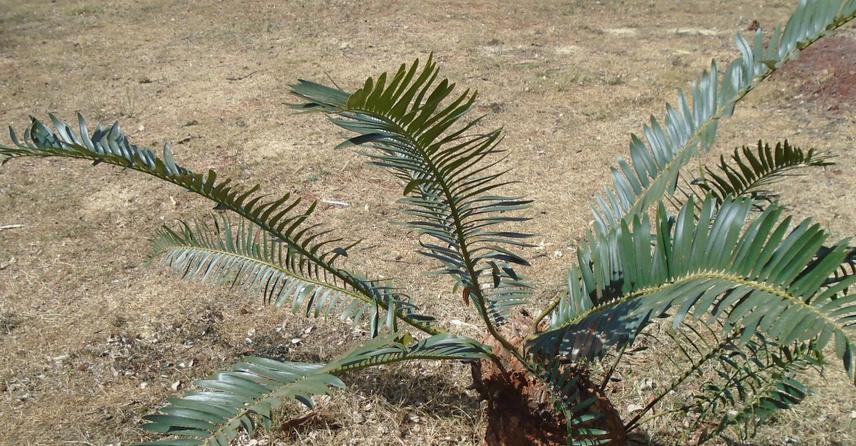Tarisai Nyamucherera
Other projects
13 Jul 2016
A Population Status Survey and Conservation Action Strategy for the Endangered Encephalartos chimanimaniensis (Chimanimani Cycad)
30 Apr 2019
Scaling Up Conservation Horticulture and Implementing a Communication Strategy to Strengthen Support for Conservation of the Chimanimani Cycad in Zimbabwe
The project aims to introduce an Encephalartos Chimanimaniensis ex-situ propagation programme so as to increase the available numbers of this single site endemic cycad which is facing extinction. Plants that will be grown in the nursery will aid research on local cycad plant propagation and will be reintroduced in protected areas in the wild and natural habitat. The project also aims to coordinate Encephalartos Chimanimaniensis identification programme to equip law enforcement officials with the necessary skills and knowledge, to address the illegal trade in cycads and enforce the current moratorium, in the wake of mushrooming trade in cycads and other in plant species in Zimbabwe. Lastly, it is envisaged that due to the creation of increased awareness and the enforcement of bylaws within the “policing realm” there will be an improved success rate in prosecutions leading to stronger penalties that will serve as deterrents for future crimes and continued poaching.

The Encephalartos Chimanimaniensis faces serious extinction possibilities as the plant species has been extremely decimated in the natural habitat due to poaching and other human activities. Currently there are no projects ongoing aimed at rescuing or propagation for this plant at any the largest herbariums in Zimbabwe who have a combined total of less than 8 mature plants within their premises. This project will therefore focus on conservation horticulture for the Encephalartos Chimanimaniensis, a critically endangered cycad in Zimbabwe.
The first component will consist of the roll out of specialised cycad identification and enforcement skills training/engagement programme, aimed at law enforcement officials, who are mandated to protect cycads, but lack the necessary specialised skills. The second component of the project will be a dedicated awareness campaign for the law enforcement officials to make state prosecutors aware of the consequences of cycads becoming extinct and the reasons why successful convictions and maximum penalties are essential for effective enforcement in relation to cycad conservation. from there, the team is also working to collect a large sample of Encephalartos Chimanimaniensis seeds to a garden at the National Herbarium and Botanical Gardens of Zimbabwe propagate them and to grow in the collections of the garden. Since the seeds will be collected from multiple mother plants from several populations, there will be good representation of genetic diversity. The nursery will enable the team to compare recovery techniques to address essential research questions such as survival rates of plants where the method of introduction involved seed, seedlings or adult plants. Using the knowledge of the project, it is envisaged that this project shall also share experiences to other cycad growers and collectors on the propagation of the Encephalartos Chimanimaniensis. This training shall combine both theoretical and hands-on approach including among others seed selection, storage, germination, nursery bed establishment & management, transplanting. In addition, the team will attempt to compile a basic protocol (technical instruction) manual for the reproduction of the species in nursery.
This propagation protocol will contain basic information for obtaining seeds and seedlings (e.g., period of collection of fruits and seeds, pregermination treatments to eliminate dormancy and adequate light conditions for the growth of the seedlings). Finally, the project will contribute to and become an important component of on-going efforts to coordinate activities within the "National Strategy for Conservation of Plants" in Zimbabwe.